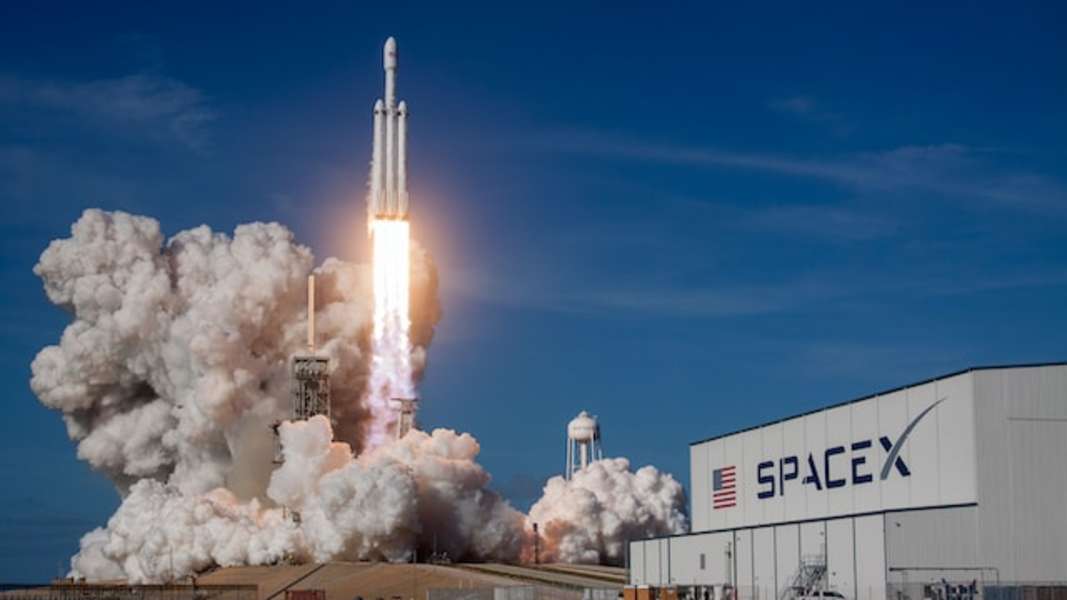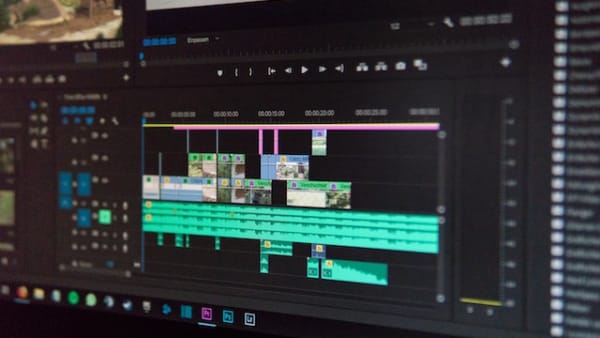Importance of Preparing for SpaceX Interviews
Founded in 2002 and headquartered in California, the privately owned Space Exploration Technologies Corporation (SpaceX) manufactures, engineers, and launches advanced spacecraft and satellite communications.
Employees at SpaceX work on projects that require innovation, creativity, and the drive to excel in what they do. Roles range from technical roles such as controls engineers, launch technicians, and electricians to compensation analysts, customer support associates, and facilities managers.
SpaceX has pioneering goals in the field of space exploration. Its mission is future-focused and aims to enable life on other planets. To achieve these goals, the company must recruit individuals who share its passion for space travel and are specialists in their chosen field.
To do this, SpaceX has a rigorous selection process. Understanding the interview process is vital for any candidate attending SpaceX interviews. In doing so, you give yourself the best opportunity to showcase your skills, experience, and competencies and demonstrate that you are the right candidate for a role at SpaceX.
The Interview Structure For SpaceX
SpaceX runs a multi-stage interview process. Candidates can expect to participate in between 7-9 interviews, with the whole process lasting, on average, eight weeks.
The early stages of the selection process comprise between 2-4 pre-screening interviews, dependent on the role applied for. Interviews are often held via phone or virtually through online platforms such as Zoom.
- Round 1 is conducted by a recruiter: this interview lasts approximately 1 hour and covers the candidate's application, skills, and experience.
- Round 2 is conducted by the hiring manager: this interview goes into more detail on the experience and skills of the candidate, including any technical skills required for the role.
Candidates applying for technical or specialist roles participate in two further interview rounds.
- Rounds 3 and 4: are conducted by hiring team members. These interviews focus further on the technical aspects of the role, evaluating candidates on their technical skills and practical knowledge and application of these skills.
Candidates successful at the pre-screening interviews are invited to the final round of interviews. These are usually onsite interviews conducted at SpaceX, where the role is based (California, Texas, Washington, or Florida).
The onsite interviews are split into behavioral and technical interviews and are held with a hiring team member.
Candidates applying for technical positions such as engineering or software-related may also be asked to complete specific case study assessments.
Types of SpaceX Interview Questions
SpaceX uses various interview questions to better understand an individual's skills and experience. Understanding the types of questions and preparing for them ensures you showcase your skills appropriately.
General Interview Questions
The aim of asking general interview questions is to understand a candidate's background, experience, and motivations for the role.
General interview questions also enable the interviewer to understand what the candidate knows about the company's values and working culture. From this, interviewers can gauge an individual's commitment to the organization and the role they have applied for.
Outlined below are some general interview questions, along with sample answers.
Example General Question 1: Why do you want to work for SpaceX?
Sample Answer: I want to work for SpaceX because I am passionate about advancing the boundaries of space exploration and technology. I am drawn to the company's innovation, entrepreneurship, and risk-taking culture. I believe that my skills and experience would allow me to make meaningful contributions to its mission.
Additionally, the opportunity to work alongside some of the industry's brightest and most talented individuals is a significant draw for me.
Example General Question 2: What are your areas for development?
Sample Answer: My area for development is public speaking. While I'm comfortable in one-on-one or small group settings, I sometimes get nervous when speaking in front of large audiences. To overcome this, I've been developing my public speaking skills by practicing and seeking feedback from others.
For example, I've asked my line manager if I can take the lead on our weekly team meetings. I have to present our team's weekly progress update to the rest of the department and answer questions. This has helped me become more comfortable in public speaking, but it's still an area I want to improve.
Technical Interview Questions (With Sample Answers)
SpaceX is focused on recruiting talented individuals in their chosen specialism. By asking technical questions, hiring managers can ascertain an individual's level of working knowledge in a specific technical area and whether they can contribute to the goals and mission of SpaceX.
Example Technical Question 1: Can you explain the basic principles of rocket propulsion?
Sample Answer: Rocket propulsion is based on Newton's Third Law of Motion: For every action, there is an equal and opposite reaction. In the context of a rocket, the action is the expulsion of high-temperature and high-pressure gas through the rocket's nozzle. The reaction is the movement of the rocket in the opposite direction. The gas is generated in the combustion chamber where the propellant, which typically consists of a fuel and an oxidizer, is burned. The mass of the expelled gas and its velocity determine the thrust of the rocket.
Example Technical Question 2 : How would you approach the design of a heat shield for a spacecraft re-entering the Earth's atmosphere?
Sample Answer: Designing a heat shield involves considering several factors. Firstly, it should be made of ablative material that can withstand extreme temperatures. As the spacecraft re-enters the atmosphere, the heat shield will partially vaporize or ablate, drawing heat away from the spacecraft.
Secondly, the heat shield should be designed in a way that it distributes the heat evenly across the surface, typically using a blunt body design. Lastly, the weight of the heat shield needs to be minimized to reduce the overall weight of the spacecraft.
Example Technical Question 3 : Explain the concept of Hohmann Transfer and its relevance in space travel.
Sample Answer: The Hohmann Transfer is a fundamental concept in orbital mechanics. It describes the most energy-efficient way to transfer a spacecraft from one circular orbit to another. It involves two burns: one to push the spacecraft onto a transfer ellipse, and a second to circularize the orbit when the spacecraft reaches its destination. This technique is widely used in space missions because it requires the least amount of energy, which translates to less fuel, making the mission more cost-effective.
Example Technical Question 4 : What are some of the challenges associated with landing a rocket back on Earth after it has been in space?
Sample Answer: There are several challenges associated with landing a rocket back on Earth. One is the high speed at which the rocket re-enters the Earth's atmosphere, which generates a lot of heat due to air compression. This requires a robust heat shield to protect the rocket.
Another challenge is slowing down the rocket for a soft landing. This usually requires a series of complex maneuvers and precise calculations to ensure the rocket slows down at the right time and lands at the right place.
Finally, the rocket must be strong enough to withstand the forces of landing without suffering any damage.
Example Technical Question 5 : How would you approach the challenge of ensuring reliable communication between a spacecraft and the mission control center on Earth?
Sample Answer: Ensuring reliable communication between a spacecraft and Earth involves several factors. Firstly, there needs to be a network of ground stations distributed around the Earth to maintain constant contact with the spacecraft. Secondly, the spacecraft needs a robust antenna system capable of transmitting and receiving signals over vast distances.
The communication systems should also be redundant to ensure communication can still be maintained in case of a failure. Lastly, the systems should be able to handle interference and signal degradation due to factors like the spacecraft's distance from Earth, atmospheric conditions, and solar radiation.
Behavioral Interview Questions (With Sample Answers)
Behavioral interview questions give recruiters an insight into how candidates have reacted to situations they have faced in the workplace. These questions center on individuals drawing on their past experiences to provide examples of how they have dealt with a situation.
Example behavioral question 1: Can you tell us about a time when you faced a difficult challenge and how you overcame it?
Sample Answer: One example was when I was working on a group project for a class in college. One group member wasn't contributing, and it was affecting the overall quality of the project. I tried talking to them, but they didn't seem interested in contributing more.
To overcome this, I decided to take on some of their responsibilities while delegating tasks to the other group members. I also set up a meeting with the professor to discuss our concerns and develop a plan to ensure everyone was doing their fair share.
Ultimately, we completed the project successfully and received a good grade. This experience taught me the importance of effective communication and collaboration and the value of taking initiative in challenging situations.
Example behavioral question 2: Have you ever been in a situation where there has been conflict between team members? How did you handle this?
Sample Answer: One of our clients had expressed concern about how their project was progressing and were discussing our next steps as a team at our weekly meeting. One of my colleagues was keen to set up a meeting with the client to discuss this further before coming up with a solution. Another colleague was eager to try out an innovative solution that had worked well with another client.
The discussion got heated as both my colleagues agreed their approach was best. I realized that the debate wasn't productive, so I calmly suggested that we find common ground in approaching the situation. As my two colleagues were the primary client contacts, I suggested we set up a separate meeting later that day to discuss this further, but that both ideas were good with their own merits. I thought this approach was best as it meant my colleagues could calm down and refocus while not taking up any more time in the team meeting.
Case Study and Problem-solving Questions (With Sample Answers)
Individuals applying for specialist roles at SpaceX may also be required to participate in a case study.
In these types of interviews, candidates are given a brief aligned to the problems they may face on the job. They must review the information and produce a report or presentation on how they would approach the situation.
Example Case Study : What considerations would you include when designing a rover to be used on Mars? Outline the actions you would take to make necessary adjustments to the rover. Describe why you have chosen these adjustments.
In this case interview, candidates would discuss their proposals with an interviewer. Candidates would be asked follow-up questions to explain their rationale around the adjustments made, benefits and drawbacks, and any additional factors that need to be considered for the rover to work on Mars.
Tips and Strategies for Acing SpaceX Interviews
The interview process at SpaceX is rigorous, and applicants need to be well-prepared to stand out from the crowd.
Here are three tips to help you ace your SpaceX interview:
1. Understand the company culture
SpaceX is a fast-paced, innovative company that values hard work, dedication, and creativity. Make sure you understand the company culture and align your values with theirs. Be prepared to demonstrate how you can contribute to the company's mission.
2. Highlight your technical skills
SpaceX is looking for the best and brightest engineers, scientists, and technicians. Ensure you have a solid understanding of the technical requirements for the position and highlight your relevant experience and skills. Be prepared to discuss your technical expertise in detail.
3. Be prepared to solve problems
SpaceX is known for pushing the boundaries of space exploration and innovation. Be prepared to solve problems and demonstrate your ability to think creatively.






